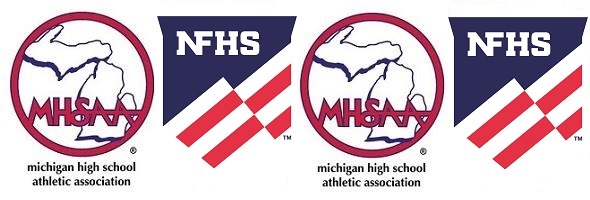
Sportsmanship and Success in Soccer
August 16, 2012
Ralph Polson, president of the National Soccer Coaches Association of America (NSCAA), reports in the July/August 2012 Soccer Journal that there is a strong statistical link between sportsmanship and success in intercollegiate soccer. He cites the work of Tim Lenahan, head men’s coach at Northwestern University, who compiled total fouls, yellow cards and red cards for the 2011 season to create a “Fair Play Rating” (FPR).
Polson reports that 12 of the 20 teams with the top FPR made the NCAA tournament, while only one of the teams in the bottom 20 did. Of course, this is a statistical link, not necessarily cause and effect. But here’s how Mr. Polson concludes his column:
“How should we interpret this data? One direction is toward more disciplined teams. It seems to me the more a culture of sportsmanship and fair play is established, the more likely any team is to demonstrate the consistency needed for success. The data suggests those teams without entrenched standards, with respect to on-field behavior, should anticipate a higher likelihood of failure in today’s highly competitive environment.
“Play within the spirit of the game and more than just a win may be gained; play against the spirit of the game and much more than just a game may be lost.”
Dr. Brian Crossman, chair of the NSCAA Ethics Committee, contributes this to the discussion in the same issue of Soccer Journal:
“A five year study from 2007 to 2011 of almost 4,700 intercollegiate soccer matches in which only one player was red-carded during the match showed a strong likelihood that the player’s team would lose. Teams that had one player red-carded lost 67 percent of the matches, tied 10 percent of the matches and won 23 percent of the matches. In other words, a team that had a player red-carded at any time during the match was three times more likely to lose the match than win it. Taking steps to encourage clean and fair play, and thus to reduce the likelihood of having players ejected, will pay dividends in sportsmanship and should improve your team’s won-loss record.”
For more, go to www.nscaa.com.

Adult Fans: HS Sports' Biggest Challenge
August 27, 2019


By Karissa Niehoff, NFHS Executive Director
and Mark Uyl, MHSAA Executive Director
Inappropriate adult behavior at high school athletic events in Michigan has reached epidemic proportion.
When more than 2,000 high school athletic directors were asked in a recent national survey what they like least about their job, 62.3 percent said it was “dealing with aggressive parents and adult fans.”
And the men and women who wear the black and white stripes agree. In fact, almost 80 percent of officials quit after the first two years on the job, and unruly parents are cited as the reason why. As a result, there is a growing shortage of high school officials here in Michigan, and in some sports like wrestling, swimming & diving and track & field, the shortage is severe. No officials means no more games.
If you are a parent attending a high school athletic event this fall, you can help by following these six guidelines:
1. Act Your Age. You are, after all, an adult. Act in a way that makes your family and school proud.
2. Don’t Live Your Life Vicariously Through Your Children. High school sports are for them, not you. Your family’s reputation is not determined by how well your children perform on the field of play.
3. Let Your Children Talk to the Coach Instead of You Doing It for Them. High school athletes learn how to become more confident, independent and capable — but only when their parents don’t jump in and solve their problems for them.
4. Stay in Your Lane. No coaching or officiating from the sidelines. Your role is to be a responsible, supportive parent — not a coach or official.
5. Remember, Participating in a High School Sport Is Not About Getting a College Scholarship. According to the NCAA, only about two percent of all high school athletes are awarded a sports scholarship, and the total value of the scholarship is only about $18,000.
6. Make Sure Your Children Know You Love Watching Them Play. Do not critique your child’s performance on the car ride home. Participating in high school sports is about character development, learning and having fun — not winning and losing.
Purchasing a ticket to a high school athletic event does not give you the right to be rude, disrespectful or verbally abusive. Cheer loud and be proud, but be responsible and respectful. The future of high school sports in Michigan is dependent on you.
The Michigan High School Athletic Association (MHSAA) is one of 51 members of the National Federation of State High School Associations (NFHS).

